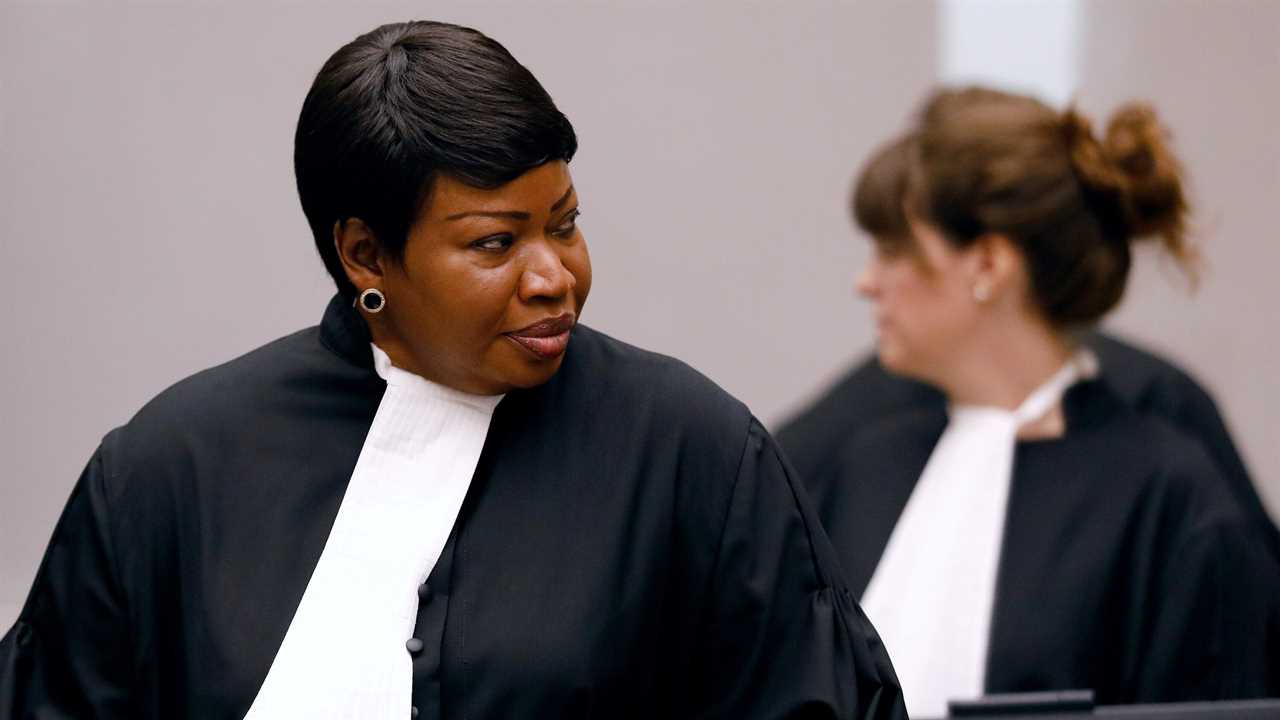
WASHINGTON — President Biden on Friday revoked President Donald J. Trump’s executive order authorizing sanctions on top officials at the International Criminal Court, reversing a decision that put the United States at odds with many of its European allies.
The move comes after the Trump administration decided last year to sanction the court’s chief prosecutor, Fatou Bensouda, and her deputy, Phakiso Mochochoko, after the court opened an investigation into potential war crimes committed by American troops in Afghanistan. It also precedes, by days, a deadline for the Biden administration to respond to a lawsuit challenging the constitutionality of Mr. Trump’s executive action.
The reversal of the executive order means sanctions on Ms. Bensouda and Mr. Mochochoko will be lifted, Secretary of State Antony J. Blinken said in a statement announcing the administration’s decision. Additionally, travel restrictions the Trump administration placed on the court’s personnel in 2019 will be reversed, he said.
“These decisions reflect our assessment that the measures adopted were inappropriate and ineffective,” Mr. Blinken added.
While the Biden administration is generally supportive of the court, which was created in Rome in 1998 to hold war criminals to account, the relationship is not without tension. The United States has maintained that because it has never been a member of the court, its citizens are not subject to its jurisdiction. The court, which is based in The Hague, argues it does have jurisdiction over potential war crimes committed by Americans in Afghanistan, which is a member of the court.
The administration has also voiced disapproval of the court’s inquiry into potential Israeli war crimes in Palestine, saying that Israel is also not under the body’s purview because it is not a member of the court, though Palestine is. The Trump administration held a similar stance.
“We continue to disagree strongly with the I.C.C.’s actions relating to the Afghanistan and Palestinian situations,” Mr. Blinken said, adding that the United States maintained its “longstanding objection to the Court’s efforts to assert jurisdiction over personnel” of countries that were not members of the court.
In 2000, President Bill Clinton signed a treaty ratifying the court’s creation. Nearly two years later, President George W. Bush reversed the decision. Both the Bush and Obama administrations cooperated quietly in several cases, with those efforts facilitating the arrest of at least two fugitives. Under the Trump administration, hostilities between the United States and the International Criminal Court peaked.
In September, Mr. Trump’s secretary of state, Mike Pompeo announced that Ms. Bensouda and Mr. Mochochoko would be subject to sanctions, saying the court was a “thoroughly corrupted and broken” institution that had no jurisdiction over Americans. He provided no evidence to support his claims.
In June, Mr. Trump signed an executive order authorizing sanctions on any personnel at the International Criminal Court who were investigating “allied personnel without that ally’s consent.” In 2019, the Trump administration revoked Ms. Bensouda’s travel visa for the United States.
Mr. Trump’s moves were criticized by numerous governments, scholars and human rights groups. Ms. Bensouda herself said the Trump administration’s decision to impose penalties normally reserved for “narcotics traffickers” and “notorious terrorists” on human rights lawyers would reduce the United States’ standing on the global stage and diminish the potency of its economic sanctions.
A coalition of more than eighty nongovernmental organizations, activists and human rights experts signed a letter in February telling the Biden administration that there was “an immediate need” to reverse Mr. Trump’s sanctions on Ms. Bensouda and Mr. Mochochoko, which froze any assets they may have had in the United States.
In October, the Open Society Justice Initiative, an advocacy organization focused on human rights, joined four law professors in suing the U.S. government in federal court in New York over Mr. Trump’s executive order.
James A. Goldston, the group’s executive director, said on Friday that Mr. Trump’s order “effectively prevented us and other rights defenders and scholars from collaborating with the court, and conducting advocacy on its behalf concerning cases of war crimes, crimes against humanity and genocide.”
“The order was a betrayal of America’s historic commitment to international justice,” he added.
Mr. Blinken’s announcement on Friday appeared intended to preclude possible embarrassment on Monday, when the U.S. government was scheduled to provide its response to the lawsuit. Rather than defending an order that has drawn scathing reactions around the world, the government can now argue the issue has become moot, lawyers said. A separate lawsuit brought by the American Civil Liberties Union would also likely become moot.
Philippe Sands, a law professor at University College London and an international lawyer with cases at The Hague, was among those who welcomed Mr. Biden’s decision.
“Not a moment too soon,” he said. “It was a disgrace for the country that gave us the Nuremberg trials and modern international criminal justice now to sanction judges, prosecutors and lawyers simply for doing their work.”
Mr. Sands added that Mr. Trump’s sanctions had already set a precedent for punishing human rights jurists that other nations were adopting.
“It has had pernicious, copycat consequences: just last week, China adopted the same approach in sanctioning British lawyers and parliamentarians merely for investigating as possible genocide the mistreatment of the Uyghurs,” he said. “It will be good to have the U.S. back fighting for the international law rule of law, not against it.”
Pranshu Verma reported from Washington, and Marlise Simons from Paris.
Did you miss our previous article...
https://trendinginthenews.com/usa-politics/how-matt-gaetz-got-here






